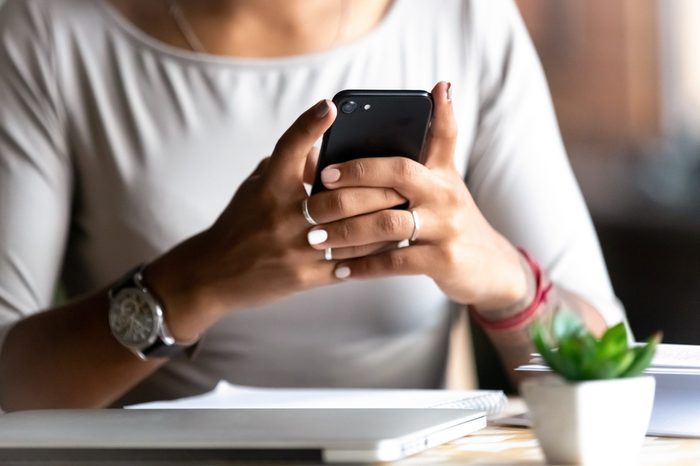
Social media is your security blanket
When you’re at a social event and suddenly alone for a moment, you might pull up social media to avoid looking awkward. But taking the chance to mingle with other people will help build your confidence, says Karen Sobel Lojeski, PhD, assistant professor of technology and society at Stony Brook University. “It’s not easy to become socially comfortable,” she says. “But when we avoid it all the time because of the habits we’ve developed around machines, we can’t feel secure as a human being.” You’ll be more relaxed and stop feeling socially awkward if you quit using social media as a crutch.
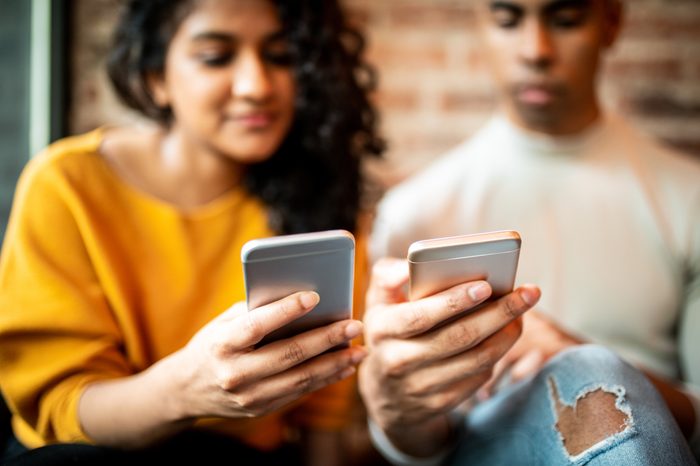
You think everyone has it better than you
We naturally use other people to gauge how our own lives should be going, says Tim Bono, PhD, assistant dean of the college of arts and sciences, and lecturer in psychological and brain sciences at Washington University in St. Louis. “Social media—especially Facebook—is exposing us to information that is ultimately exaggerating how much better off others are in comparison to our own lives because we are gaining access only to a narrow segment of other people’s lives,” he says. Facebook pages are usually highlight reels—people post about their incredible vacations or fun nights out with friends, but rarely talk about their insecurities or struggles, says Bono. Spending too much time envying others’ best moments could make you feel like your life—ups, downs, and all the mundane things in between—doesn’t measure up. (Psst: Use these tricks to stop negative self-talk.)
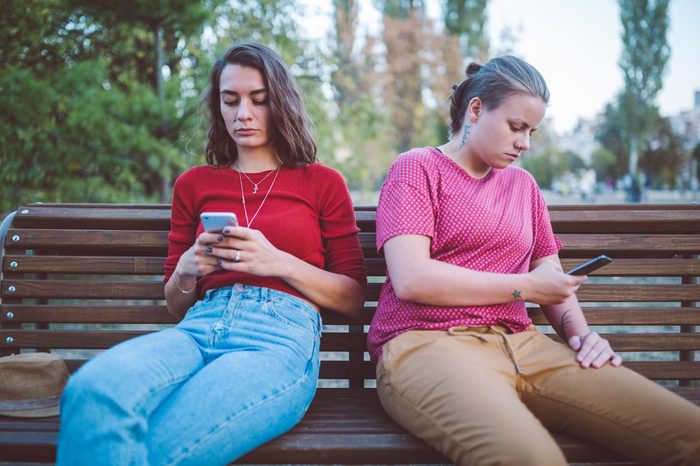
You get annoyed with friends in person
That highlight reel you keep seeing doesn’t just make you feel worthless when you’re alone. That envy could carry over to your real-life relationship with that person. “They carry that angst, anger, frustration, and envy with them into an actual conversation,” says Sobel Lojeski. When you do see that friend face-to-face, the resentment could come through and leave you with a shorter fuse. (Learn how to deal with a toxic friendship.
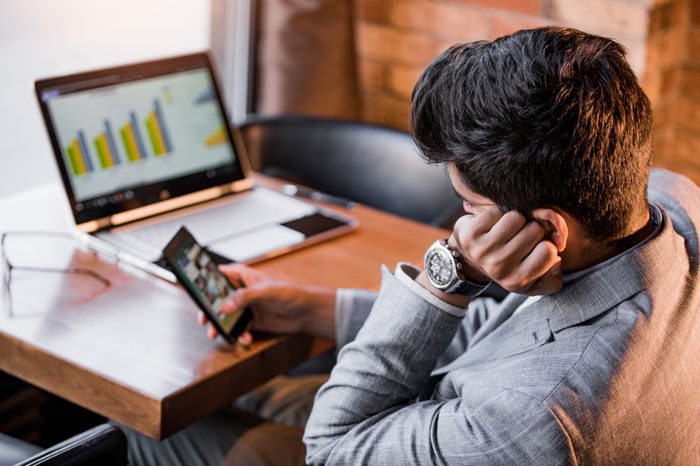
You use social media to procrastinate
Ever jump when a coworker catches you on social media? No need to apologize, short breaks throughout the day can boost productivity and creativity. The problem is, a quick, 10-minute social media break can quickly turn into a half-hour, says Pamela Rutledge, PhD, director of the Media Psychology Research Center. “We tend to sort of misjudge how much time we’re spending on things,” she says. “It’s super easy to fall off the grid because there’s so much stuff there.” She recommends keeping track of when you’re using social media and why. If you open social media because you’re too tired to keep working, for instance, maybe you should limit yourself to a 15-minute break or re-focus just a little longer so you can wrap up and get to bed. (Here’s why you should think twice before bringing your phone to bed with you tonight.)
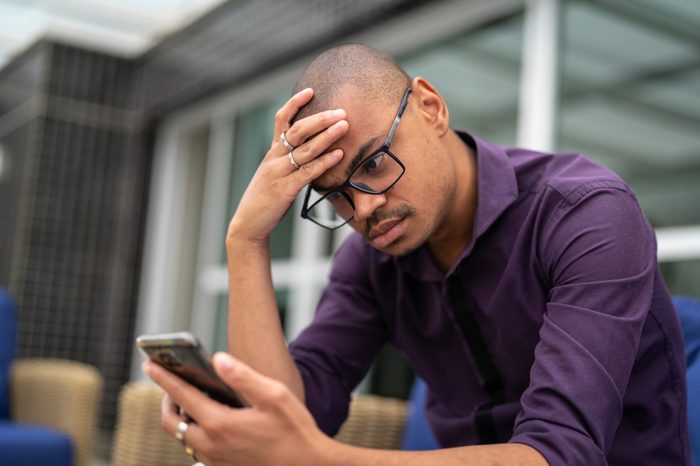
Your friends’ posts rile you up
Spending too much time on social media could expose you to too a lot of negativity. “The biological tendency is going to be to look for the negative because we are hardwired to make sure we’re safe,” says Rutledge. “The way to increase our level of safety is to understand the uncertainty in the environment around us and create certainty.” When a Facebook friend posts something you don’t agree with, your first reaction might be to get defensive. If you realize a certain friend tends to make you angry or jealous, Rutledge recommends blocking that person’s posts.
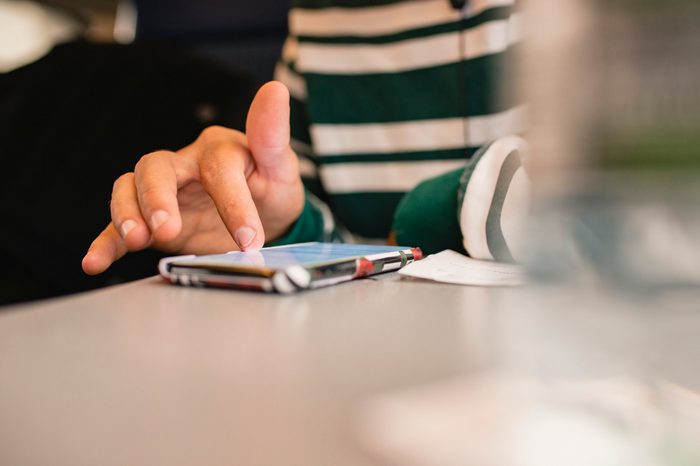
You won’t stop scrolling until you find something interesting
Facebook’s design actually sets itself up to be addictive, says Bono. You’ll glaze over most of your news feed, so you have to dig to find posts that are actually enjoyable. It’s sort of like a slot machine, he says—when there’s a small chance you’ll get a big payoff and see something really cool, your brain floods with chemicals encouraging you to keep going. “Because the information is only occasionally interesting, our desire to keep going back increases even more than if everything we saw was appealing to us,” says Bono. “When something ‘only occasionally’ has a payoff for us, it actually becomes even more attractive and even more addictive.” (Also, this is the sign you’re oversharing on social media.)

Facebook is your main news source
News—both fake and real—are all over Facebook. Just because it’s there, though, doesn’t mean social media is the best source. “Use Facebook for what it’s intended, which is social connection,” says Rutledge. “Use news sources for what they’re intended, which is reporting the news.” Facebook also uses algorithms to show you what it knows you like, meaning you might only see articles you’ll already agree with. Get a more balanced view from a few news sources before making a judgment, says Rutledge.
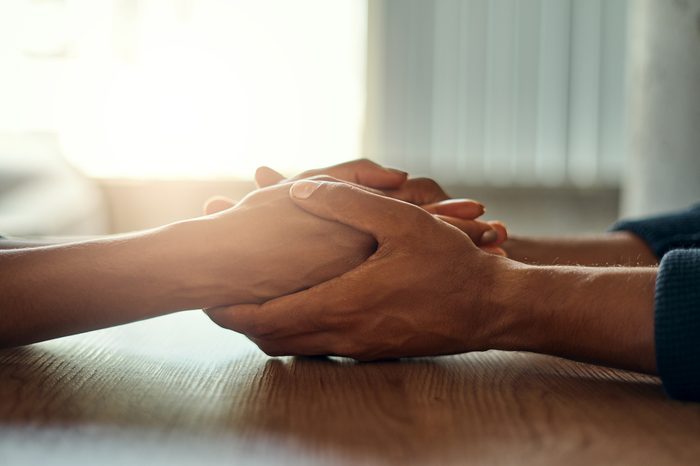
You aren’t a supportive friend
Our brains are programmed to assume other people think just like us—until we see the other person face-to-face. But when you’re interacting through a screen, you can misinterpret what others say and stop recognizing their points of view. “When we’re not living the experience of understanding that people think differently than we do, then empathy erodes,” says Sobel Lojeski. “We just don’t help other people as much.” For instance, you’d probably offer to help if a friend complained about a bad day in person. But when you just see the complaint about a Facebook post, it’s easy to ignore. (Find out if you have incredible empathy.)

You get distracted from your kids
You’re probably more than aware of how often your kids are on social media. If you’re trying to set limits, make sure you follow those rules too. “If you don’t want your kids on Facebook when you’re talking to them, don’t be on Facebook when they’re trying to talk to you,” says Rutledge. “Recognize when it’s important to be present.” Your kids look to you when learning how to balance screen time with face time, so make sure you’re a good role model.
Next, learn how smartphones can help better manage your health concerns.
